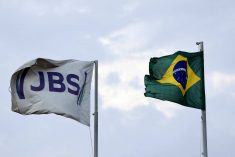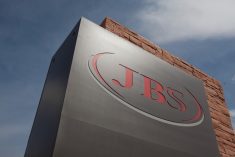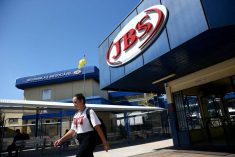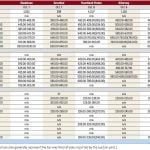Chicago | Reuters –– JBS USA, one of the top U.S. meat processors, said Thursday it will expand a Utah beef processing facility, even as some of its rivals have been shuttering plants because of tight cattle supplies.
The project is notable because the U.S. cattle herd has fallen to its smallest size since 1951, making it difficult for beef processors to find adequate supplies.
The company said it plans to complete the expansion in the spring of 2016. More cattle are projected to come to market by then as producers rebuild the herd.
Read Also

U.S. livestock: Feeder cattle hit contract highs on tight supply
Chicago | Reuters – All Chicago Mercantile Exchange feeder cattle futures and most live cattle futures hit contract highs on…
JBS will spend $US75 million to increase production at its plant in Hyrum, Utah, to make the facility more efficient and to expand the beef and ground beef products it offers, according to a statement.
The 79-year-old plant processes nearly 500,000 cattle per year, and the expansion will increase production by more than 400 head per day, the statement said.
JBS’ Utah plant, which exports about 20 per cent of its production, is in “an ideal location for expansion to service the ever-growing beef market in the western U.S.,” said Bill Rupp, president of JBS USA Beef, in the statement.
On Friday, the U.S. Department of Agriculture will issue an annual Cattle Inventory Report that is expected to show the size of the herd has stabilized after a seven-year decline.
“While the U.S. beef industry has certainly faced recent supply challenges, we are confident that the expansion of our traditional cattle mix to include beef and dairy cows will result in ample cattle supply,” said Steve Williams, head of cattle procurement for JBS USA.
Cargill closed a beef processing plant in Wisconsin last year and a beef plant in Texas in 2013 because of the scarcity of cattle. National Beef Packing last year closed a California beef processing plant.
— Reporting for Reuters by Tom Polansek and Theopolis Waters in Chicago.
















